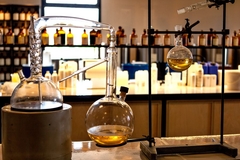Experts caution against DIY sunscreen amid anti-sun care rhetoric on social media

02 Sep 2024 --- Do-it-yourself or DIY sunscreen suggestions are gaining popularity on social media platforms. Cosmetic companies like Mibelle Biochemistry are warning of the darker side of the latest beauty trend.
Platforms are bursting with instructions and videos of people making sun care products to fight “unpleasant’ ingredients,” according to Mibelle Biochemistry, but unfortunately, it says, this approach can create more harm than good.
A rise in social media users questioning the safety of sun care or deeming it entirely unnecessary has been gaining traction in recent years, specifically on TikTok. A study by the Orlando Health Cancer Institute recently found that one in seven adults under 35 say daily sunscreen use is more harmful than direct sun exposure.
“If you care about your skin, please stay away from this trend and rely on the tested products you can get on the market,” warns Mibelle Biochemistry.
According to a study in the National Library of Medicine, 68.3% of recommended recipes for homemade sunscreens offer insufficient UV radiation protection on Pinterest. The authors cite that users are accepting insufficient sun protection information and advocate for public health professionals to proactively engage on social media.
Leave sun care to “experts”
Mibelle Biochemistry acknowledges the longtime popularity of consumers making shampoo or lip balm, which it describes as “relatively easy.” But the company asserts that sun care should “definitely be left to the experts.”
The cosmetics ingredient supplier cites that commercial sun creams are “thoroughly tested” to ensure they offer the stated SPF. Homemade sunscreens do not undergo these tests, making it “very difficult” to determine the actual protection.
 Some social media users are hopping on the bandwagon of not using sun care.Zinc oxide cannot be suspended using conventional equipment — in most cases, this is not possible evenly. Therefore, it is impossible to accurately determine the SPF based on the amount of zinc oxide used.
Some social media users are hopping on the bandwagon of not using sun care.Zinc oxide cannot be suspended using conventional equipment — in most cases, this is not possible evenly. Therefore, it is impossible to accurately determine the SPF based on the amount of zinc oxide used.
“Formulating sun cream requires a deep understanding of chemistry and dermatology. Simple DIY online recipes often do not provide the necessary protection and can even cause skin irritation,” writes the company.
“These are usually limited to a few oils in which zinc oxide is to be suspended. However, this is neither evenly possible, nor do the oils offer sufficient protection against UV radiation. In addition, unpleasant by-products of non-stabilized oils can be formed, particularly through sunlight and oxygen.”
Blair Murphy-Rose, MD, deems homemade sunscreen “not safe” in Skincancer.org.
Murphy-Rose adds: “Homemade formulas shared on social media have no scientific basis, and their application can be dangerous. Many ingredients commonly used in homemade sunscreen recipes (such as vegetable and fruit oils) do not provide effective sunscreen and should not replace sunscreen. Applying oil to the skin instead of sunscreen is very harmful.”
Mibelle Biochemistry also adds that there are natural products that support sun care and can even boost SPF, such as plant extracts in addition to the aforementioned oils. It mentions its Heliogard/Norigard nc, SunActin and PhytoCellTec Solar Vitis as potential solutions.
By Sabine Waldeck













